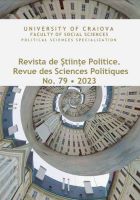Long-term volatility forecasting of Brazilian stock index behavior using suitable GARCH family models
Long-term volatility forecasting of Brazilian stock index behavior using suitable GARCH family models
Author(s): Santosh KUMAR, Bharat Kumar Meher, Ramona Birau, Mircea Laurenţiu Simion, Ion Florescu, Abhishek Anand, Sunil KumarSubject(s): National Economy, Policy, planning, forecast and speculation, Financial Markets, Public Finances, Socio-Economic Research
Published by: Editura Universitaria Craiova
Keywords: Volatility; Forecasting; MGARCH model; EGARCH model; GJR-GARCH model; emerging stock market;
Summary/Abstract: GARCH (Generalize Autoregressive Conditional Heteroscedasticity) family models, notably the GARCH (1,1), GJR-GARCH,EGARCH, M GARCH, and TGARCH models,(Chang, McAleer, & Tansuchat, 2012) are used in this study to empirically test volatility clusters of the IBOVESPA index using data from 20 May 1993 to 17 March 2023. A further perspective on asymmetric volatility clustering and leptokurtosis patterns is offered by the empirical analysis, which is based on daily observations from the Brazil stock market (7380). The study examines the existence of asymmetries in the patterns that transmit volatility, the movement of shocks with higher positive and negative magnitudes, and the suitability of the model. In addition, the purpose of this study is to evaluate the accuracy of volatility forecasts using both univariate and multivariate models that of Normal, Student-t, and Generalized Error Distribution constructs in predicting stock volatility over a period of more than 30 years, from May 1993 to March 2023 in the Brazilian stock markets. The results supported the existence of the leverage effect during the sampling period. Furthermore, the empirical results revealed that the sample returns of the chosen stock market had a significant level of volatility. By adding new factual data on the long-term performance of the Brazilian stock market, particularly in light of exaggerated events, this study adds to the body of literature already in existence. By adding new empirical data on the long-term behavior of the Brazilian stock market, particularly in light of extraordinary occurrences, this study adds to the body of literature already in existence.
Journal: Revista de Științe Politice. Revue des Sciences Politiques
- Issue Year: 2023
- Issue No: 79
- Page Range: 9-24
- Page Count: 16
- Language: English

